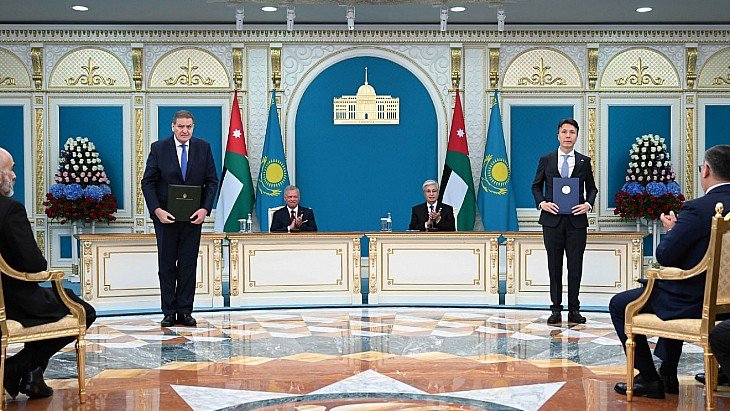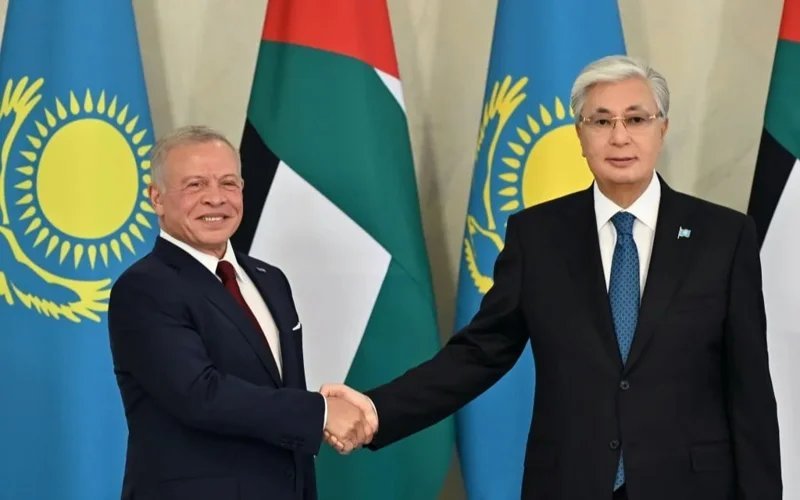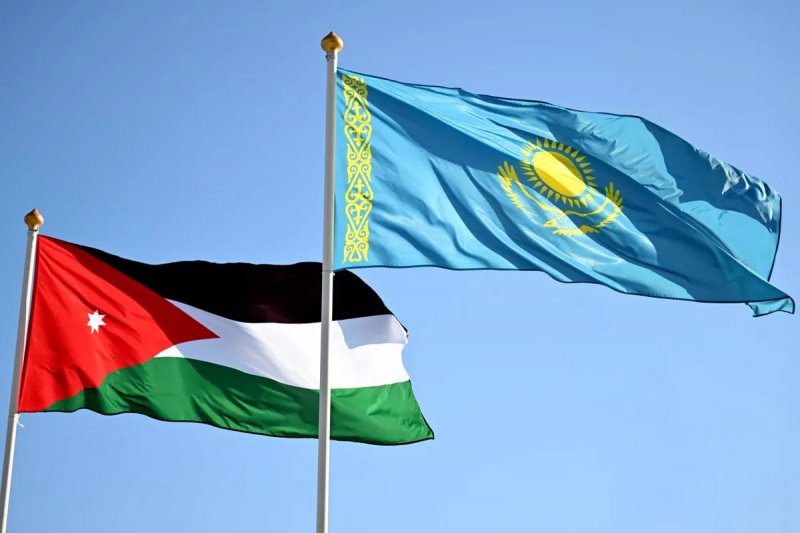A new alliance is emerging in global energy politics, one that could reshape the balance of power in the uranium market. Jordan, long in search of a reliable partner to develop its uranium reserves, has now definitively turned away from France and placed its bet on Kazakhstan — the world’s leading producer of this strategic resource.
Kazakhstan has announced plans to conduct geological exploration and develop uranium deposits in Jordan. According to Nurlan Zhakuov, Chairman of the Samruk-Kazyna fund, research will be carried out until 2026 to assess the extractability and enrichment potential of Jordanian uranium. If the results are positive, a joint venture will be established by the end of 2026, with 70% owned by Kazatomprom and 30% by Jordan’s state-owned company Jumco.
The talks between the two countries go beyond formalities — they are strategic in nature. Back in December 2023, at the fifth meeting of the Kazakhstan-Jordan intergovernmental commission in Amman, the two sides discussed prospects for cooperation in mineral exploration and mining, including uranium. By February 2024, a memorandum of understanding had already been signed between Kazatomprom and the Jordan Uranium Mining Company, which Jumco’s general manager, Mohammad Shannaq, described as “critical for Jordan’s future.”
 Photo: Kazatomprom
Photo: Kazatomprom
The surge in global uranium prices has made these plans particularly relevant. With the global energy transition accelerating, interest in uranium has risen sharply, and Jordan has returned to the spotlight. As early as the 2000s, deposits with uranium concentrations ranging from 190 to 400 ppm were discovered about 250 kilometers from Amman. In 2010, Jordan’s Atomic Energy Commission declared the findings in the Al-Hasa region to be highly promising for the country’s strategic reserves.
Jordan’s nuclear ambitions are not new. Back in 2009, officials announced plans to build two nuclear power plants. One of them was originally to be located near the port city of Aqaba, but the project was later revised and relocated. In 2011, King Abdullah II stressed that Jordan ranked 11th globally in uranium reserves and invited foreign investors to participate in nuclear projects.
Yet, the path to realizing these ambitions has been complicated. Jordan’s early cooperation with European and Australian companies failed to yield results. The most notorious case involved France’s Areva, whose license was revoked in 2012 after Jordan accused the company of misreporting uranium data. Areva claimed the deposit contained 20,000 tons of uranium, but an independent audit revealed nearly twice as much. The scandal undermined trust in European partners and forced Jordan to search for new allies.
Kazakhstan has emerged as the ideal partner. Not only is it the global leader in uranium mining, but it is also actively expanding abroad. In 2024, Kazakhstan reaffirmed its dominance, with major deposits such as the one in Suzak district of Turkestan region continuing to drive production growth.
 Photo: Akorda
Photo: Akorda
For Jordan, cooperation with Kazakhstan is vital. The kingdom currently imports more than 90% of its electricity, and developing nuclear energy is a matter of national security. According to OECD and IAEA data, Jordan has about 62,000 tons of uranium, with total potential reserves estimated at up to 70,000 tons. At today’s price of $150 per kilogram, these reserves are valued at $6.3 billion, but experts believe that figure could double as demand rises and supply tightens.
Thus, the Kazakhstan-Jordan deal goes far beyond a standard economic partnership. For Amman, it is a chance to secure long-sought energy independence; for Astana, it is an opportunity to strengthen its status as a global player capable of shaping uranium market dynamics.
At a time when the world’s energy landscape is undergoing a profound transformation, this cooperation stands as a vivid example of how nations are building new alliances driven by strategic interests rather than traditional geopolitical alignments.
By Tural Heybatov
